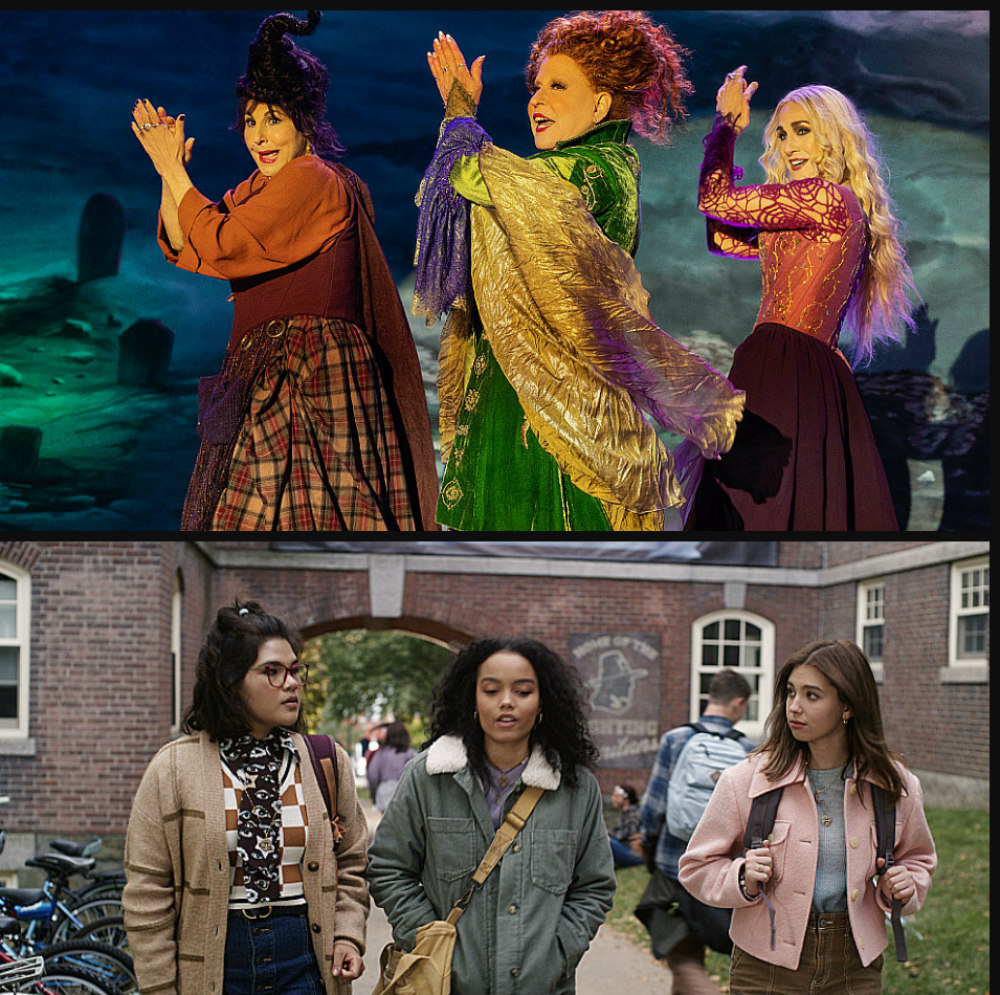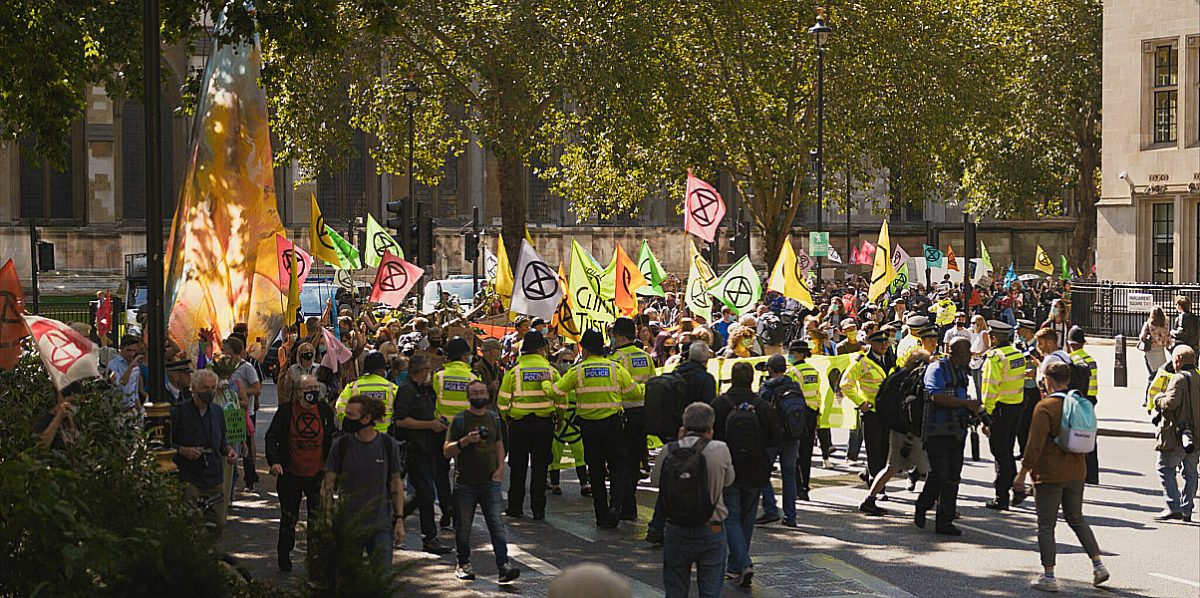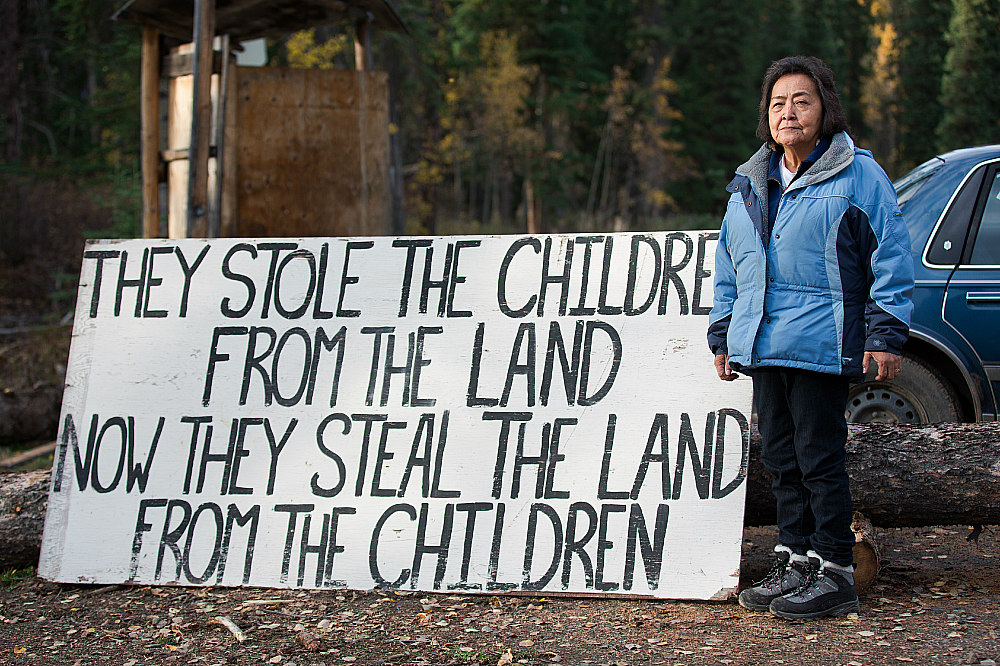Support strong Canadian climate journalism for 2025
Gay romance, witches revived and a western rides again. They're at the top this week and not far below let's get more serious with a few more picks from the Vancouver International Film Festival. It's now on, runs until October 9 and offers a thoughtful movie experience. Foreign films, indies, Canadian and BC films get attention there. Many might never come back so look what's on.
I'm glad that Back Home, a film that I've been plugging, has been slotted for a third screening. It's local, has been noticed by the professionals and has my grandson in the cast. I'll be there tonight to watch him.
I list more that interest me down below and these films from the usual venues and outlets right here.
Bros: 3 ½ stars
Hocus Pocus: 3 ½
Dead for a Dollar: 2 ½
VIFF picks: various
BROS: There have been gay romances on screen before, usually from independent companies. This is from one of the big guys, Universal and that's one step forward, Another is that it succeeds at what the two creators intend. Billy Eichner co-wrote it with Nicholas Stoller, who directs it. Billy, who also stars, wants to show that gays are and have been around forever and should be portrayed realistically in the movies like anybody else. That's the message expounded by Bily's character, a podcaster.
The film proves it by its very structure. It's a rom-com like any we've seen from Meg Ryan who is visually referenced a few times. Boy meets boy, boy loses boy, boy gets him back. Same story arc.

The lover here is a muscled, work-out guy who likes to take his shirt off and secretly wants to be a chocolatier. He's played by Luke Macfarlane. Eichner in his podcasts argues gays are not the same, they're different, their sex lives are different. Their biggest mistake was convincing people they're smart. He talks about vanity, runaway emotions and feeling like victims. Critcisms? Didn't seem to bother gays at a preview screening. They laughed and enjoyed that Eichner dared to say them. There's more at a planning meeting for an LBGTQ museum and with several cameo characters. Debra Messing, for instance, complains that gay men are always asking her for advice just because she used to play Grace. Jokes aplenty and real observations about gays and not-all-that-graphic sex add up to a smart, breezy film. (In theaters) 3 ½ out of 5
HOCUS POCUS 2: The story of the film is almost as grand as the one in it. This sequel comes 30 years after the original, which was a flop at the time. Roger Ebert hated it, people avoided it and it might have drifted away except that it caught on when cable and video got it. It became a hit every Halloween. This follow-up, which took years to come together, brings back Bette Midler, Sarah Jessica Parker and Kathy Najimy as the three witches and in a small role Doug Jones as Billy Butcherson. All the other actors and characters are new.

The time is present day Salem, Mass. Three teens led by Becca (Whitney Peak, known from several TV series) accidentally revive the town's infamous history. With a book of speels and incantations they found in a thrift store, they bring back the three witches who were put to death back then. Also Billy, whose affections two of them feuded over, though he mostly watches with wry disbelief what goes on now. It seems the reverend who condemned them back there in the 17th century has reappeared too. He's now the mayor and running for re-election. Reincarnation? Well, it's a fantasy. But the witches want revenge and they have one day to get it. Or they'll disintegrate. The film has great energy and Bette Middler owns it. She struts and postures gleefully and pronounces that she is so powerful that she does not need a book. It's a great, showy performance from her, and a subtle, quiter one from her modern counterpart, Becca. And an enjoyable movie. (Disney+) 3 ½ out of 5
DEAD FOR A DOLLAR: Many of us grew up on Westerns and that makes this a treat. They're so rare these days. That it comes from legendary director Walter Hill, has a fine cast including Christoph Waltz, Willem Dafoe and Rachel Brosnahan and was made with Alberta financing, add to the appeal. It's not a classic but does draw you in with a tale and an ambience that will remind you of some of them. Especially of spaghetti westerns. It's got the moody style and the regard for honor and courage exactly right and it mixes in a few racial and women's issues.

Waltz plays a bounty hunter hired to bring back a wife (Rachel Brosnahan) who was abducted by a black army deserter in Santa Fe and taken to Mexico. At least that's the story he and we hear early on. It's not true, as he eventually learns. He'll have to decide if he'll finish the job he's been paid to do. Meanwhile, Willem Defoe rides into the story, ostensibly to “play cards and stay out of trouble.” That can't be. Waltz had caught him years before and sent him to prison. A show-down is sure to come out of this. Also , after eight riders arrive, a major gun battle that spreads through an entire small town and goes crazily excessive. The film is like that, crafty and then over the top. (Streaming on Cineplex, Telus, Shaw, Rogers, Bell, Sasktel, Cogeco, Apple (iTunes), Microsoft, Google) 2 ½ out of 5
VIFF PICKS: The festival is shorter this year, the films are fewer but it's still hard to do justice to any list of good picks. Many of the most interesting films aren't available to preview and some only play once. Noting which ones have won awards elsewhere helps. Decision to Leave for Instance: best director at Cannes. The Whale: three awards at Venice. The Broker, best actor at Cannes, Alcarras, the Golden Bear (best film) at Berlin. I'm especially looking forward to The Banshees of Inisherin (two awards at Venice but more so because it's from Martin McDonagh who made the very funny In Bruges with the same two actors, Colin Farrell and Brendan Gleeson.)
These are a few that I have seen already.
I wrote about RICEBOY SLEEPS and BONES OF CROWS last week and praised them both. Highly,
THE GRIZZLIE TRUTH: (Oct 1 and 5) is a follow-up of sorts from Kathleen S. Jayme who once again displays her passion for the long-gone Vancouver Grizzlies basketball team. Four years ago she showed us the team's best known player, “Big Country” Reeves. This time she focuses on the entire team trying to understand why it developed such love among the fans and what took it away (to Memphis Tennessee). And why it failed while the Toronto Raptors thrived.
She finds a lot of answers: a losing record, a declining Canadian dollar, failure to draft a star player, possibly hampered in that by the league policies. She track down that star player who got away, shoots hoops with him and hears his side of the story for the first time. She meets Stu Jackson, the general manager who regrets letting him get away and is still blamed by many for that mistep. Jayme also hears how great teams are built and what drives fans to obsession. She admits she has it.

She leads demonstrations, even in Mephis when she goes there. But she also listens and comes back much more upbeat than I expected. This is a very good film. 4 stars out of 5
REBELLION: This documentary is bound to be of special interest to Observer readers because it shows the origins, and the principles, of probably the most radical group fighting climate change. Extinction Rebellion uses the well-known tactics of the civil rights movement—non-violent disruption—to get the message across. They clog roads, block bridges and stop traffic.

It started in England under the leadership of Roger Hallam, a Welsh organic farmer who saw the effects of climate change on his crops. He said blocking traffic was the easiest way to get noticed and have the news media pay attention to the dire emergency. That puts pressure on the politicians. Later he got more extreme, saying that everyone in the movement should be working to get arrested. “How far you should push it depends on how right you are,” he said. The film traces the growth of what he started taking right into small meetings, planning sessions, training classes, massive crowds in the streets and even some later meetings where dissention came out against his leadership. There's great footage, beautifully edited, giving us a lively and important document. (Sunday evening & Monday afternoon) 4 out of 5
ANYOX: I wish I could be as positive about this one. It's got a good story to tell and was made by much-admired filmmakers but is more than disappointing. Shots are frequently held too long. Do you need what feels two minutes to look at a hole in a rock face? Or watch water flowing around a rock? Especially when they don't add to the story set a mining town north of Prince Rupert, BC, back in the 1930s. Immigrants are brought in to work the mines, are underpaid, and go on strike. Provincial police are brought in to put it down. Martial law is declared. I handn't heard of it before.
Some personal accounts are read out and that works but then an entire goernment report is put on screen page after page and we can hardly read them Pages of a labor newspaper, The Worker, then come up and page afterpage give a different slant. We can't read much of it either, it's on microfilm, but the headlines are big enough to give the facts. “To the Attention of Besieged Anyonx Workers.” “Anyox Strikers Remain Solid: Keep Copper plant Closed.” And many more. A most interesting story but not well-told. (Screens Friday and Monday) 2 out of 5
KLABONA KEEPERS: We've been seeing quite a few documentaries about Indigenous people fighting to save their land (Site C, The Amazon, just recently) and this is one of the best. It takes us to a fight that doesn't get much attention these days but seems to be on going, and could break out again. Back in 2005 there were blockades and forced work stoppages as elders in Northern B.C. campaigned against a giant coal-mining project by a company called Fortune Minerals. It would be right in or near the headwaters of three major rivers and threaten the fish and drinking water. In the Tahltan language, Klabona means headwaters (KLA) and open country (Bona).

The film shows many of the elders explaining what's at stake. “Our land is being taken away by white people.” “I will fight for our land”. And in one confrontation with miners: “We're not going to let you pass.” There is film of these scenes; they include RCMP, company men and even a CEO explaining their side. And as assembled by the directors, Tamo Campos and Jasper Snow-Rosen, it's clear that the memory of residential adds power to these protests. (I wrote this when it was at the Human Rights Watch Canada Film Festival in Toronto. Now at VIFF it screens Oct 3 & 5) 4 out of 5


Comments